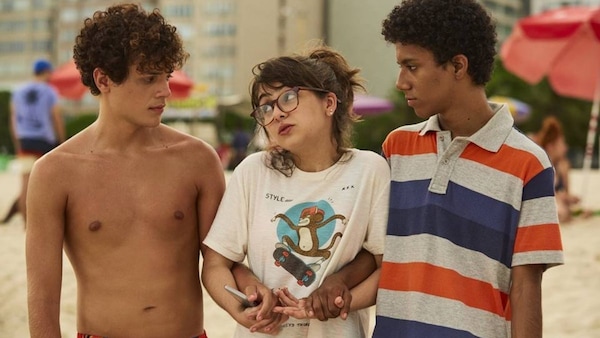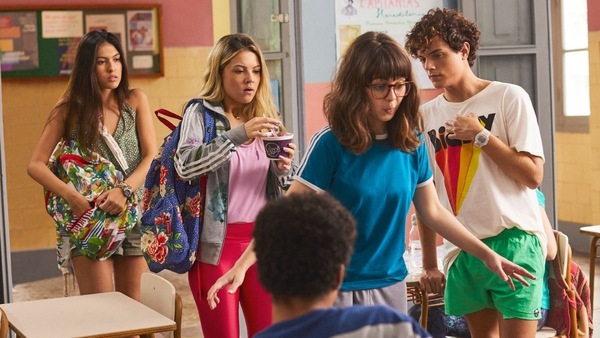Confessions of an Invisible Girl movie review: Netflix’s Brazilian teen drama is tedious and regressive
Confessions of an Invisible Girl repurposes 90-s YA comedies to offer a highly reductive take on what high school struggles look like.

Last Updated: 09.57 PM, Sep 24, 2021
Story: A new girl in the school finds it hard to make friends due to her social awkwardness. When she comes into the crosshairs of the school bully, her life becomes miserable.
The Confessions of an Invisible Girl is a bit of a misnomer. The protagonist in this film, directed by Bruno Garotti and based on an original story written by Thalita Rebouças, does not seem to be as invisible or socially awkward as she is an overzealous teenager with a bit of a nothing problem. Moreover, Tetê (Klara Castanho) pretty much resembles a live-action version of Dora the Explorer. But she’s berated for her intelligence.
She is no Lady Bird, Wallflower or Easy A. While you are told she is book-smart, the film chooses to spend more time in giving her a makeover ala The Princess Diaries, reinforcing the regressive notion that women need to conform to certain standards of physical beauty to be heard out.

Which brings me to the central problem with this Portuguese-language teen drama, streaming on Netflix. It is so cliché and familiar that by the end of the movie, there is nothing to write home about. This is evident from the superficial treatment of Tetê, who has just relocated from Brazil after her father’s unemployment. From 10 Things I Hate About You, Mean Girls to To All the Boys I’ve Loved Before, the fish-out-of-water template has been immoderately overused through decades. Invariably, the underdog protagonist would achieve something extraordinary by the end of the film and take down her detractors the same. Yet, in Confessions of an Invisible Girl, there is nothing as such that makes you root for this underdog.
There is also the disappointed parent trope watered down to suit the PG-13 ethos. Tetê’s parents and grandmother repeatedly taunt her for not being able to fit in or make friends, but their disappointment is used for comedic effect. Unfortunately for the film, these jokes come across as criminally dated, and in poor taste.

The Confessions of an Invisible Girl tries to pose a commentary on the culture of bullying by making Tetê the recipient of ill-treatment. The issue is, shows like 13 Reasons Why have been so nuanced about discussing the bullying culture in US schools that anything remotely less holistic feels flimsier. In The Confessions of an Invisible Girl, the resolution is reached in a matter of a group hug and a selfie. None of the parties are held accountable for their actions, that range from gatecrashing a party, taking photos without consent, mental and physical harassment, among other things.
The setting is a high school reminiscent of every other elite high school ever depicted in a teen film. Likewise, every set piece looks like it has been borrowed from one film or another. Tete has a gay friend, but no discourse on sexuality is fully realized.
The mean girl, as one would expect (sigh!), is a conventionally pretty teenager (remember Regina George?) with blonde hair, cronies and an impeccable taste in fashion. There’s nothing to indicate the film is set in 2021 except for the characters’ occasional mention of memes and Instagram.
Verdict: If you have watched just about three 90s Hollywood teen rom-coms in your life, you can skip the movie that has as much depth as a petri dish.
WHERE
TO WATCH
Subscribe to our newsletter for top content, delivered fast.

